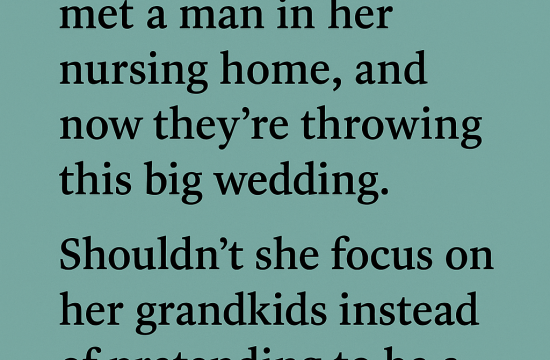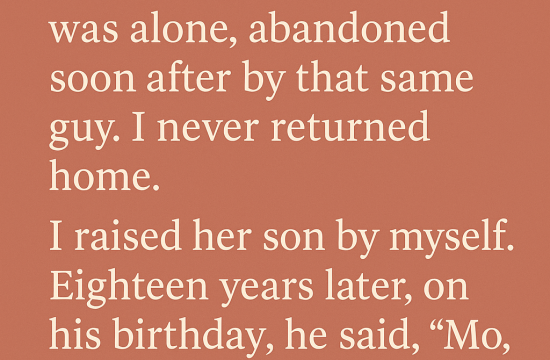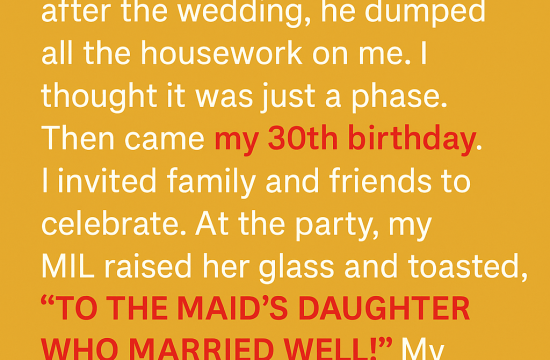Nelly was a quiet neighbor whose presence stirred gossip about a missing child and a hidden past. She rarely interacted with anyone, kept her curtains drawn most days, and never attended the usual neighborhood get-togethers. Some called her mysterious. Others called her strange. But Martha, who lived across the street with her husband Evan, simply saw her as lonely—and tried, in her own small way, to extend kindness.
Still, Martha always felt a vague unease around Nelly, though she couldn’t explain why. That changed one summer afternoon while Martha was weeding her garden. She glanced up toward Nelly’s window and caught sight of a small boy watching her. His face was unfamiliar, but something about him made Martha freeze.
A single, unmistakable mark—a teardrop-shaped birthmark under his left eye. Identical to the one Evan had as a child.
Her stomach turned. She didn’t want to believe what her mind had pieced together in an instant, but the truth was inescapable. The boy was Evan’s son. And Nelly wasn’t just a recluse—she had been raising Evan’s child right under their noses.
Martha didn’t confront Evan that evening. Or the next. She watched him talk, laugh, go about life with the same practiced ease, as though nothing in their marriage had ever been false. And yet everything had shifted for her.
By the end of the week, Evan came home to divorce papers on the kitchen table.
He never admitted the affair outright, but he didn’t deny it either. Perhaps he knew the evidence was written on the boy’s face. His silence was confession enough.
Strangely, it wasn’t anger that consumed Martha—it was sorrow. Sorrow for the years wasted, for the lies she unknowingly lived inside, and especially for Tommy, the innocent child born of betrayal. He hadn’t asked for any of this. He was just another casualty of Evan’s deception.
A few months later, Evan’s parents—aghast at their son’s actions—reached out to Martha with an unexpected offer: half the family business. “It’s not enough to make up for what he did,” they said, “but we want you to have something real. Something stable. You deserve that much.”
Martha accepted—not out of spite, but out of resolve. She poured herself into the work, using the new income to build a future for herself and her two children. It became more than business. It became a symbol of her rebuilding.
Eventually, Nelly and Tommy moved away. There was no dramatic goodbye, no attempt to explain or mend. Just a quiet exit. But the silence they left behind no longer felt heavy—it felt like space. Space to heal. To breathe. To begin again.
Martha didn’t just survive the betrayal. She transcended it. And in doing so, she redefined herself—not by the lies that nearly broke her, but by the strength she found in their aftermath.











